

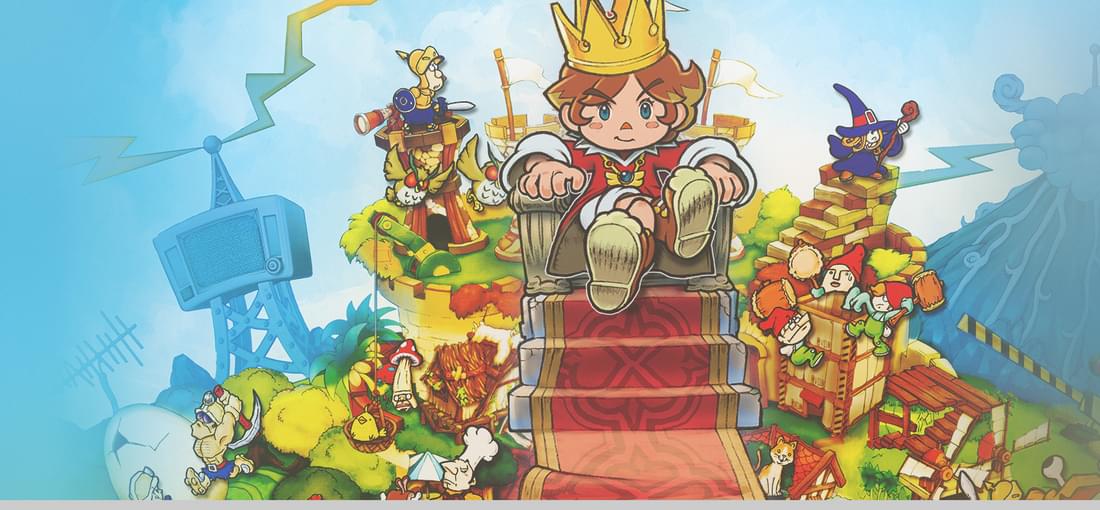
I didn't play this game on the Wii when it came out, so this was a new experience to me. It's a pretty cute game, and could have a lot of potential in terms of story and world building and even interactions. It's sort of a mix between pikmin (throwing your followers at tasks and/or enemies) and kingdom building. Apparently the story is pretty interesting too, but I was not able to get very far in it. The problems are with the controls and the interface. It's not just an old game issue - Pikmin itself is both older and better in this way. I even connected up a controller, because keyboard controls exist but are definitely unplayable. It's really hard to aim your guys at the place where you want them to go. There are events where you ask your digger guys to dig a hole, and then enemies come out of the hole, and you are supposed to tell your fighter guys to fight the bad guys. This is basically impossible! Even when the interface assures you that you are sending your fighter guy to fight the enemy, the fighter guy instead runs into the hole and loses health because fighters lose health if you try to get them to dig. Meanwhile, your diggers are losing health because the enemy is attacking them. Meanwhile, you can only see the health stat for the first three guys in your party; and you only see the first five guys in your party in the HUD; and you have extremely limited control of how to arrange your followers in your party. A person's health seems to change randomly(???) each time you try to give them a new job. The map is pretty useless. The camera rotation controls are super slow for no apparent reason. And the final straw - the game only has manual saves in one specific place on the map, and it occasionally crashes just as you are walking up to that place!
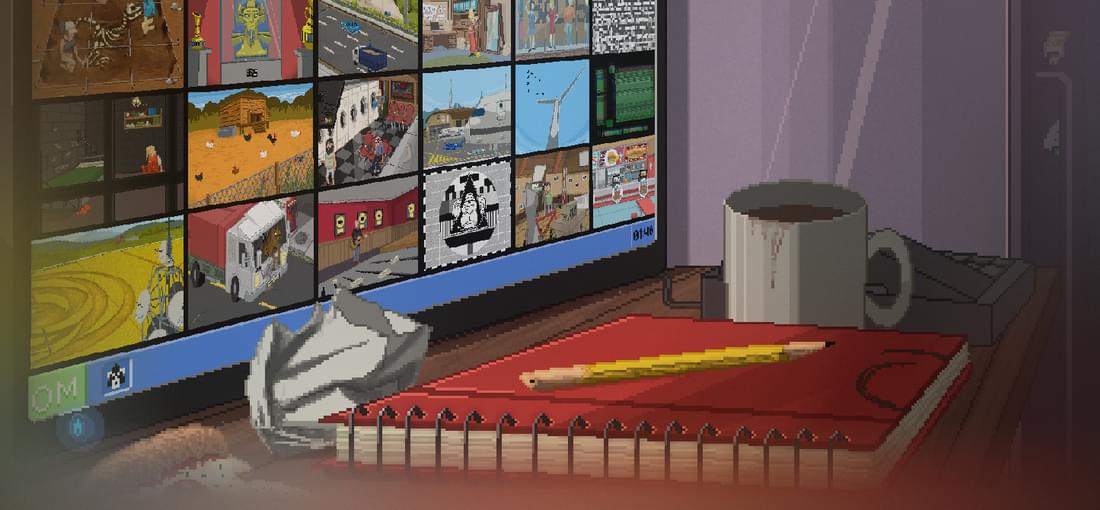
I enjoyed my first playthrough of this game quite a bit. But this is definitey a game that's intended for more than one playthrough - there's a lot of randomization in what you see and when, and there are probably several outcomes for each schenario. My one full playthrough took me probably 3-4 hours. The game has you juggle watching several (unrelated, but happening in the same general world) video feeds, "write down" in your notebook things it finds important, and do some additional research/guesswork based on these notes. You can also meddle in the things that are happening to affect the outcome. On top of that, your character exists in the world too, and has to eat/sleep/pay rent etc. in order to not die; and people knock on your door for various additional interactions. I like the concept of a world that keeps happening regardless of whether you interfere. Many of the scenarios are pretty cliche and unsubtle, but there are a couple with amusing surprising outcomes. Either way, I still enjoyed uncovering "mysteries" and searching the "internet" for clues. The "survival" management was a bit anxiety-inducing at first, but I got into a rhythm and found a good balance to strike. I did find the "meta" aspects of it amusing. Here I am, sitting at my computer, playing a character who is sitting at their computer, getting interrupted by various things while I also get interrupted by things like being hungry and my dogs deciding it's playtime. On my first playthrough, I was happy to just react to the world and see how it reacts to me. But when I started a second playthrough, I was actually trying to aim for specific outcomes (e.g. the opposite of what I did the first time around), and this was surprisingly frustrating. I started noticing that things end abruptly and unexpectedly too often. e.g. I write an email about a scenario and it immediately "turns off" and I can't interact with its notebook page and send a video to a fourth party.
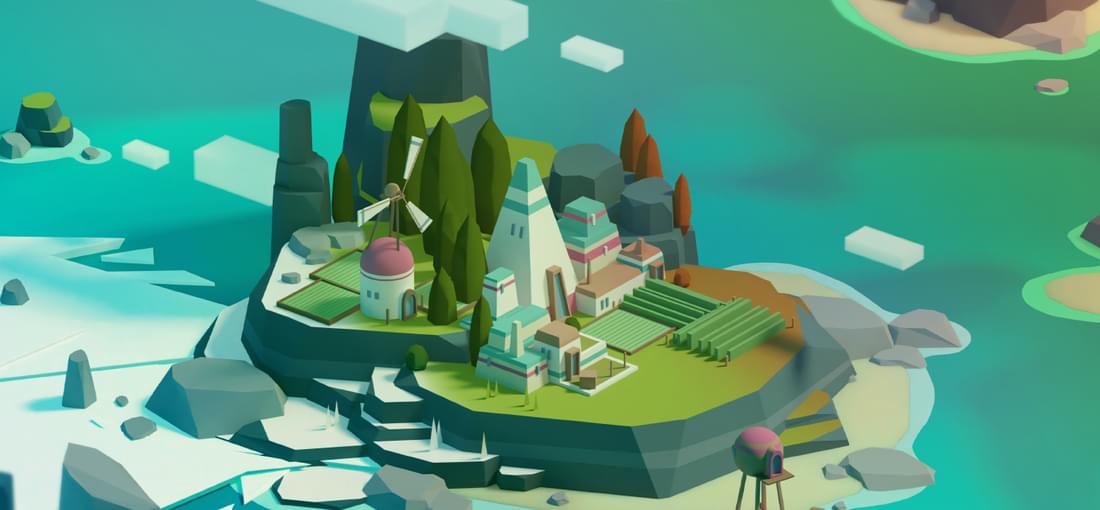
Oh my goodness, what a neat and elegant little game! It's a procedural puzzle game that looks and feels like a town-bulding strategy game. You place buildings closer or further away from other already-placed buildings to maximize the number of points you get. It's simple to get into, but there are really nice strategic layers as you learn the possible relationships between buildings and learn to plan ahead for what you may or may not be able to do in the future if you put that thing right there right now. For example, one interesting wrinkle is that order of placement matters; and moreover, that's the only thing that matters. It's good to place a wall next to things, but it's bad to place things next to alread-existing walls. It's OK if your town clears out all the forests next to a lumber mill, because you already took advantage of the forest when you placed the lumber mill (less OK if your town plan involves buildings that don't like lumber mills, of course) What I really love is how these relatively simple rules basically pull you into being part of the procedural generation. By the time you're done with an island, you have procedurally generated a neat and organic looking town just by trying to optimize for points. The constraints of the map shapes and the building shapes work together to introduce slightly different quirks to your towns (for example, making sure that it's usually not optimal to keep all your building orientations to a rigid grid). It does get a bit same-y after, you know, 20 hours and a bunch of islands... I probably will never actually get through the 21 islands that the "high score" mode suggests, just because it would take sooo long. But for a tiny puzzle game like this, I am totally fine with that. I would definitely buy the developer's other games if they ever come to GOG!
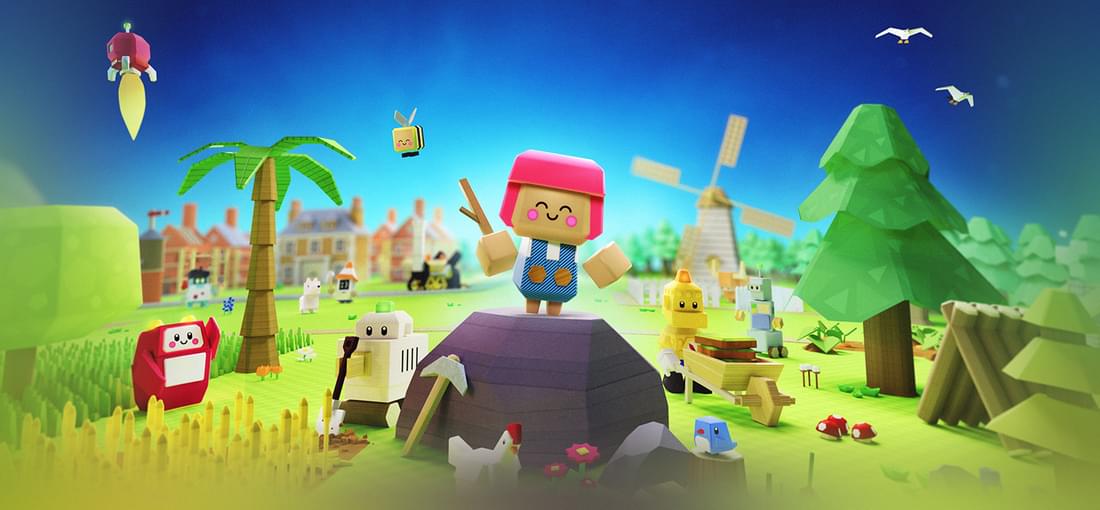
First, if you play this game, I highly recommend starting in Enlightenment mode with bot recharging turned OFF. Enlightenment mode was apparently the original mode made for the game, and it plays better in my opinion. And bot recharging just adds busywork that doesn't present any interesting problems to solve. In this game you program bots "by example", by recording what you do and then editing the program as necessary. The affordances of the programming language and the way the world is set up to support it all work really nice, in my opinion. The bots generalize your examples in very sensible ways, but there is still room for interesting optimization and streamlining. So definitely worth checking out. I have two major quibbles with the game: 1. The UI can be clunky. Everything takes a few too many clicks. It's hard to tell what a certain click will do, and often even what it did just do after I click! Copying programs with the disk item is a small nightmare. Don't do it, just build the bot database. 2. It gets grindy and tedious, especially for an automation game. At the beginning, there is an opressive amount of manual stuff to do in order to bootstrap basic quality of life automation. And toward the middle of settlement mode, the advancement became extremely predictable: upgrade each existing industry by building this new dohickey and start a new industry to support the new need of your higher-level "Folk". I was kind of looking forward to trains and rails, but could not muster up the motivation to keep grinding. I started over in Enligtenment mode, and at least there is some more breadth and flexibilty (different paths to the same objective, don't have to upgrade all industries in lockstep). Even so, the simulation of the world feels very shallow: the answer to "what effect(s) can this thing have" is always just "it is needed to satisfy the need of Folk at level X". Things don't even really grow, reproduce, or interact without your direct intervention.

Meh. I went straight from playing YootTower (semi-official sequel to SimTower) to this, and the comparison is not flattering. (By the way, if you are wondering where all the reviews are, they are in the normal edittion, and I wish I saw them before I purchased this edition with all the expansions) This game is somewhat smaller-scale and slower-paced than SimTower (which is actually what I wanted) and also throws a bunch of complexity at you from the get-go (which is not what I wanted). Now, I love a good complex simulation with lots of systems and interesting interplay between them; as long as it introduces the elements in a learnable way, gives me a way to understand what is happening and why, and the resulting system has space for *creative* play/optimization/customizations/etc. Or at least a strong 2 out of those 3. This game has maybe 0.5 out of those 3 - the systems can be slightly interesting to play around with, once you get the hang of them. The number of systems that you have to plan for RIGHT AWAY is too much - the simplest tenants have 2-3 infrastructure requirements each, so you need to be able to balance carefully which ones will work with each other before you even had any hands-on experience with said infrastructure systems. The interface is super obfuscated, there are 2-3 different ways of displaying how much money you made/lost today alone! I'm not actually sure which ones are different and which ones are the same, which is a bad sign. The data that is present is not very helpful in understanding *why* things are going wrong: why is this place not profitable? where do visitors tend to go (or not go)? which things add/don't add noise? (in YootTower, at least, I can figure this out by trial and error) The balance is not very forgiving at all, especially at the beginning, so trial and error is bound to make you go bankrupt. that is frustrating to me in a not-fun way. Especially when I don't know WHY I went bankrupt and WHAT to do differently.
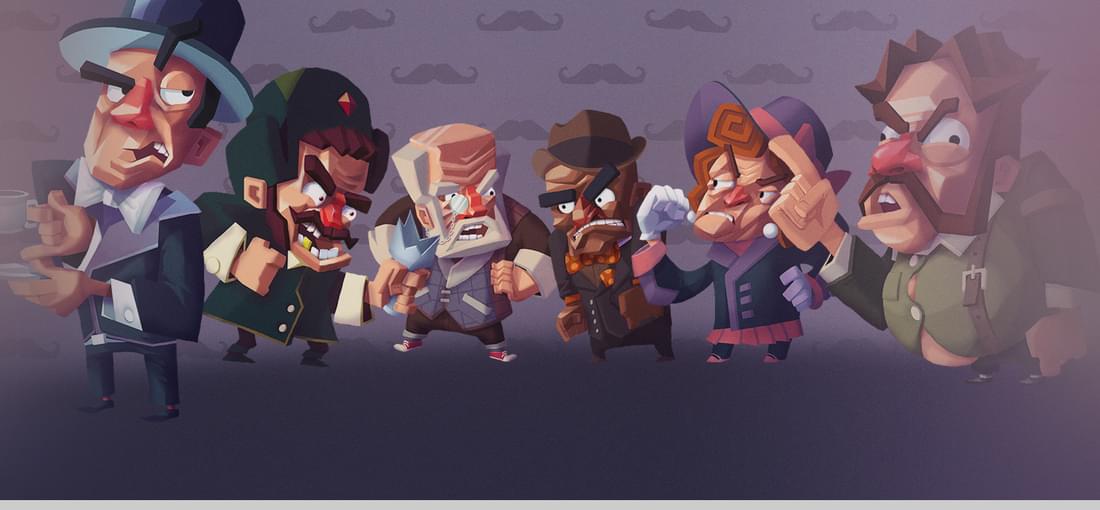
Pros: (1) fun, interesting design - especially if you are a nerd and like to admire implementation (ooh, is that a context-free grammar validator? it's very cool how the settings and the characters can all contribute to the insult); (2) room for strategic play, e.g. choosing fragments to block what your opponent can say; (3) some behind-the-scenes scoring rules that mean you can't say complete nonsense and hope to win. Cons: (1) not enough content - just 5 stages it's a shame, really, because the system could have supported a way greater variety of content, more connected "stories", etc. (2) way too many monty python references. yes, it's a game about nonsensical and silly insults, so it's more appropriate than in other games; but the fraction of content that's a monty python reference is ridiculous, and the references are usually straight up "remember this thing someone else made, wasn't that funny?" rather than any kind of commentary. Make up your own jokes and funny phrases!